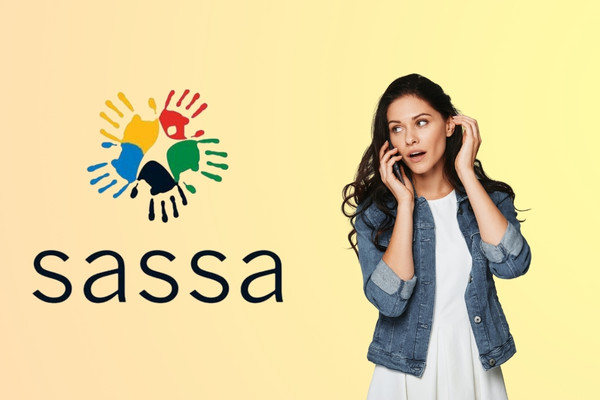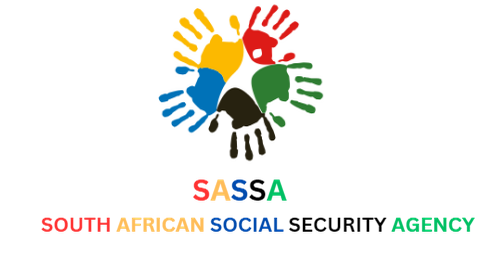The COVID-19 pandemic has underscored the importance of social safety nets, particularly for vulnerable groups in South Africa facing unemployment, food insecurity, and loss of income. Social grants administered through the South African Social Security Agency (SASSA) provide a crucial lifeline. This includes the special Social Relief of Distress (SRD) grant introduced during COVID-19 to aid lower income households.
SASSA was established in 2004 under the Department of Social Development to distribute social grants nationally as part of South Africa’s extensive social security system. This includes means-tested grants, grants for disability, and grants for children in need (SASSA Overview, 2022).
When COVID-19 hit, the government introduced temporary SRD grants to expand the social safety net. However, qualifying for and maintaining SASSA grants involves navigating complex legal regulations and government policies.
Qualifying for the SRD Grant
Eligibility criteria for the SRD grant has evolved during COVID-19 as regulations and policies adapted to the changing landscape. Initial criteria focused on citizens with no other income source. Later amendments set a monthly income threshold of R350.

As of January 2022, the criteria as per SASSA’s policies and government regulations include (SRD Grant Criteria, 2022):
- South African citizen, permanent resident or refugee registered on the Home Affairs system
- Unemployed
- Not receiving any other social grant
- Income below R350 per month
- No support from UIF due to unemployment
Applicants must provide essential documentation like proof of identity, bank statements, affidavit on income, and more. Non-citizens must provide visa and asylum documents. Applicants should understand eligibility criteria to ensure successful applications.
Maintaining the SRD Grant with Reconfirmation
An important requirement for SRD grant recipients is reconfirming eligibility every 3 months per updated SASSA regulations. This involves verifying ID, contact details, bank account information, and affidavit of income via SASSA’s online portal or in-person (SRD Reconfirmation Requirements, 2022).
Failure to reconfirm within allocation periods can result in the SRD grant being suspended. Recipients must regularly check reconfirmation dates and ensure they have access to the online system to avoid lapses. Using the SASSA online portal allows maintaining grants remotely.
Cancelling SRD Grants
Those no longer requiring the SRD grant can voluntarily cancel through the SASSA online portal to stop payments (Cancel SRD Grant, 2022). Cancellation may be necessary if income improves or other grants are received. SASSA may also suspend grants if reconfirmation is not completed on time.
Understanding cancellation policies ensures recipients can smoothly end SRD grants if required. This also allows SASSA to allocate limited resources to new applicants in need.
Expanding Social Assistance Through Policy Reform
While social grants provide vital support, some advocates argue for expanding coverage even further through policy reforms.
For example, a universal basic income grant could provide monthly cash transfers to all South Africans without means testing (Support for Basic Income Grant, 2022). Adjustments to grant amounts pegged to inflation could also improve purchasing power.
Simplifying documentation and verification processes involved in applying and reconfirming grants may promote access and efficiency. Digitalizing and streamlining cumbersome bureaucratic processes could help those struggling with paperwork and transport access receive entitled benefits.
Policy reforms shaping social assistance must balance fiscal constraints, targeting those most in need, and promoting human dignity. There are no easy solutions, requiring constructive dialogue and political negotiation.
The Crucial Role of SASSA Grants for Children
Child support grants especially help cement child welfare, education, and family nutrition. Caregivers can receive up to R480 per child monthly through SASSA upon meeting requirements (Child Support Grant, 2022).
Grants are vital for poor households struggling with school fees, uniforms, transport costs, and meals impacting children’s education. Child hunger and malnutrition without social assistance can severely impact development, learning, and future economic participation.
However, some experts argue for expanding child grants and untying them from biological parents to protect children’s rights more holistically (Children’s Institute, 2022). For example, tying grants to children rather than caregivers may allow distributing resources to orphanages and other childcare facilities.
Balancing Targeted Aid and Universal Approaches
Given limited resources, governments must determine the right mix of universal aid versus targeted assistance. More universal child grants could promote equality but may divert resources from the ultra-poor.
There are also administrative costs of expanding grants universally while reducing targeting mechanisms. SASSA must consistently evaluate grant data and research to calibrate the optimal focus.
Innovating Delivery Models and Reducing Corruption
Distributing social grants nationally to over 10 million recipients monthly is an epic bureaucratic undertaking. SASSA must balance scale and efficiency with audit controls.
Transitioning from cash payments to digital transfers reduces corruption and ensures reliable delivery. However, digital illiteracy requires maintaining cash pay points. Biometrics and electronic validation also improve integrity but require upfront investments.
Modernizing data systems allows SASSA to combat fraud and better understand granular trends. But cybersecurity is equally crucial with growing digitalization to protect personal identities.
There are inherent tradeoffs in innovating social grant delivery mechanisms while upholding security and reliability.
Importance of Appealing Rejected Applications
Given the gatekeeping role of SASSA administrators, some grant rejections may be incorrectly assessed. Applicants believing an error occurred should appeal rejected grants by:
- Reviewing why they were rejected
- Confirming they have the latest eligibility documentation
- Drafting a formal appeal letter with supporting documents
- Submitting the appeal to the SASSA Complaints Handling unit
Well-prepared appeals citing facts may overturn invalid rejections, enabling rightful aid access. Having application rejection reasons clearly explained promotes transparency.
However, burdensome appeal processes could discourage legitimate cases. So streamlining reapplication procedures boosts social protection.
Enabling Financial Inclusion with Social Grants
Accessing social grants can facilitate financial inclusion by bringing recipients into the formal banking system. SASSA partners with major banks and financial service providers to offer grant recipients fee-free accounts.
This allows grant recipients to build financial histories, receive ATM cards, transact digitally, and access credit opportunities. Integrating social grants with broader financial services is a crucial economic springboard.
But simply having a basic bank account may not guarantee full financial inclusion. Recipients also need financial education on topics like budgeting, savings, insurance, and debt traps to truly benefit. Coupled with social grants, such programs can create pathways out of poverty.
The Role of NGOs and Legal Aid
Many non-profit organizations and legal aid clinics assist social grant applicants and recipients with navigating the complex requirements. For example, they may help collect documents, explain policies, assist with applications, provide advice on appeals, and more.
These services are vital given high poverty levels and large numbers seeking social assistance. They provide on-the-ground assistance bridging government delivery gaps.
Some organizations conduct research and advocacy as well, pushing policymakers for improvements that make programs more user-centric. Their insights strengthen the national social security system.
Overview of Core SASSA Grants
Beyond temporary COVID-19 SRD grants, South Africa’s social security framework includes a range of core programs.
- Older Person’s Grant: Provided to citizens and permanent residents over 60 years old without other grant income.
- Disability Grant: For unemployed citizens and permanent residents with disability unable to financially support themselves.
- Child Support Grant: For parents/caregivers of children under 18 who are citizens or permanent residents needing assistance.
- Foster Child Grant: For foster parents/caregivers of foster children needing support.
- Care Dependency Grant: For parents/caregivers of children with severe disabilities requiring permanent care unable to support themselves.
- War Veteran’s Grant: For citizens/permanent residents who fought in World War 2 or the Korean War.
- Grant-in-Aid: A supplementary grant for recipients needing full-time attendant care due to physical disabilities.
Each grant has specific eligibility criteria in terms of age, income thresholds, disability assessments, dependents, and nationality/residence requirements. Understanding the nuances is key to successful applications.
Conclusion
SASSA social grants are a pillar of South Africa’s post-Apartheid welfare state expansion and poverty alleviation. Grants provide monthly income support to over 10% of the population vulnerable to hunger, malnutrition and systemic inequalities.
COVID-19 has reinforced the value of direct income support through grants but also revealed opportunities to improve efficiency, coverage and innovation. Policymakers must continue balancing fiscal constraints with ensuring adequate support through economic shocks and recovery.
Meanwhile grant recipients and applicants navigating the complex bureaucracies involved must have easy access to information and assistance. Social grants remain essential for cementing socio-economic rights and can serve as a bridge to wider financial inclusion when coupled with appropriate financial education.
